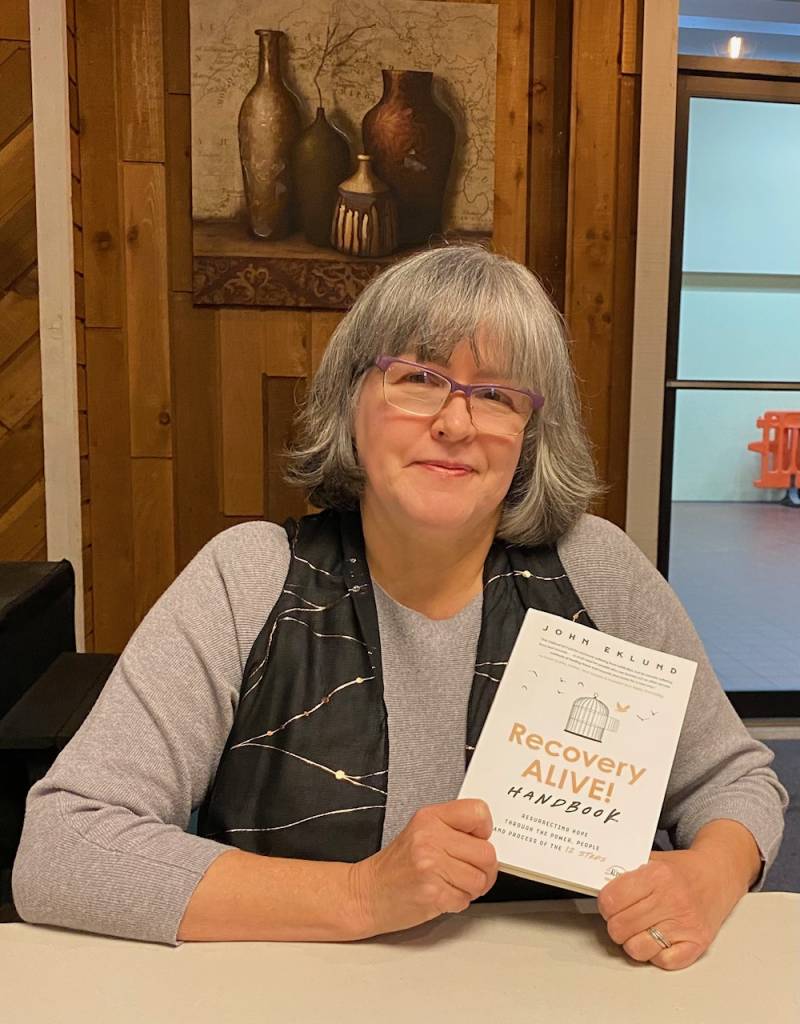
Photo by Joanne Beck
After Martha Horton lost her sister, who struggled with using pills and alcohol, to suicide in 1997, a pastor asked Horton to lead a recovery group, an experience that taught her another lesson about addiction.
Her sister Sharon had never been in any trouble, so when she ended up dead by her own hand while in county jail in Albany, a shocked Horton wanted to be helpful.
“I thought I was doing it for her,” Horton said. “I learned I was a codependent, which is also an enabler. I made a lot of progress, thanks to the Celebrate Recovery program.”
She mentored more than 60 women then and has gone on to make addiction recovery a focus of her ministry at EverPresent Church in Batavia. Horton and fellow minister Maury McCoy will be leading the Recovery Alive program, which begins at 6:30 p.m. on Jan. 30 at the church, 4 Batavia City Centre.
Based on the author, Christian counselor, and psychologist John Eklund’s book, Recovery Alive has become an international program that grew especially popular during the COVID-19 pandemic, Horton said.
“It has twice the impact in half the time,” she said. “These things are all weaknesses that take us from our best life that God intended for us, and so this program works with us to find those weaknesses. Some people don’t even know the root of the problem, but we really get down to the root of the problem.”
It’s a program built upon the 12 steps of Alcoholics Anonymous, with use of scriptures and a handbook for participants to actively work through each step by answering thought-provoking questions and digging deeper to discover what may be underneath one’s hurts, habits and addictions. Or, as a brief promotional video describes it, hang-ups.
A weekly session of about 90 minutes each is to include a review of that week’s step, a guest speaker, and then breaking out into smaller groups to work on the handbook. While there certainly will be talking and sharing, part of the goal is to also help participants find out those buried root causes or issues and deal with them, Pastor Jason Norton said.
“That’s powerful because a lot of people, a lot of these addictions are the results of an inner turmoil of some sort, an abuse, or a molestation, something, trauma,” Norton said. “This is more equipping people with tools to work the recovery.”
Contrary to what some may believe, addiction is not just about drugs and alcohol, he and Horton said, and this program will address anything, from shopping, past abuse, and pornography to poor self-esteem, grief, depression, food, and any other issue that one needs help with.
Chapters include The Power of — Weakness, Humility, Surrender, Honesty, Confession, the Cross, Forgiveness, Ownership, Grace, One Day at a Time, The Altar, and of Service.
Full disclosure: the leaders can be available for ministerial and pastoral counseling and don’t have drug and alcohol counseling degrees, Norton said, “but all, most of us, have come from that background, probably half to three-quarters of our church are people that are in recovery.”
The handbook is described as a “practical, powerful and proven resource combining the raw honesty of the 12 steps with what Horton said is about finding your higher power, and she wants folks to come and check it out before deciding whether it’s for you or not.
“Just show up. A lot of people get to the point of just being so overwhelmed that they feel like, I can't, I just can't. I can't do it anymore. I can't stop doing what I'm doing, whatever it is,” she said. “But we get to what some people call the bottom of the barrel, and when we look at other people, we think they're at the bottom of the barrel, but it's an individual basis. We have to recognize when we're at that point, and then real recovery can begin.”
No one is obligated to attend every single session, she said; however, more progress will come with more participation. The program will last four to five months or longer, depending on the group's needs, and the cost is $20 for materials. Financial assistance may be available for those who can’t afford it.
Three keys to Recovery Alive are power, as in your higher power; people — finding a safe community — and the process of working through the 12 steps, Horton said. Whatever is shared during the sessions and who attends must be kept confidential. “Boundaries” are discussed at each meeting to remind participants about the importance of privacy and respecting each other’s personal information, she said.
“There’s always a leader in charge,” she said. “And after a while, we talk about the five commitments: I commit to courageous honesty, to trusting and keeping the trust of the people in my group, to opening my heart to the healing, transforming power of God, to working the process, answering questions, and attending faithfully, to diligently seeking and ultimately attaining a sponsor and accountability partners.”
For a peek at the promotional video, go HERE.
